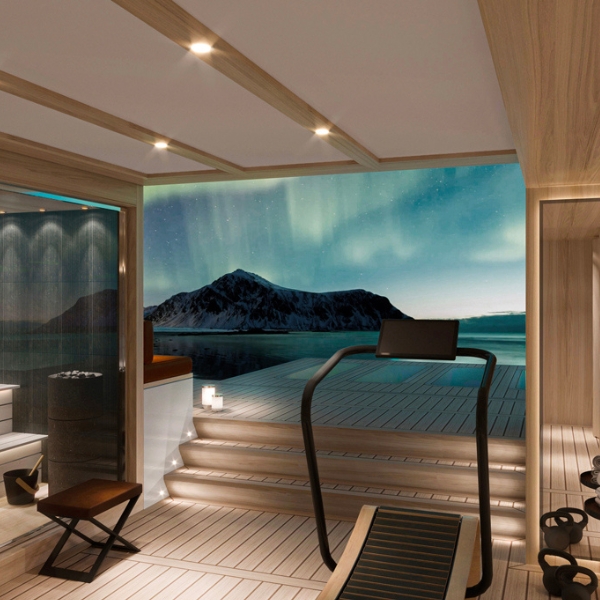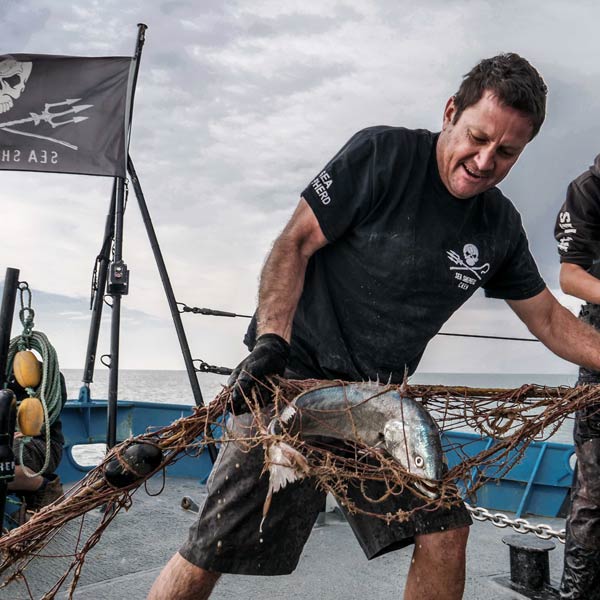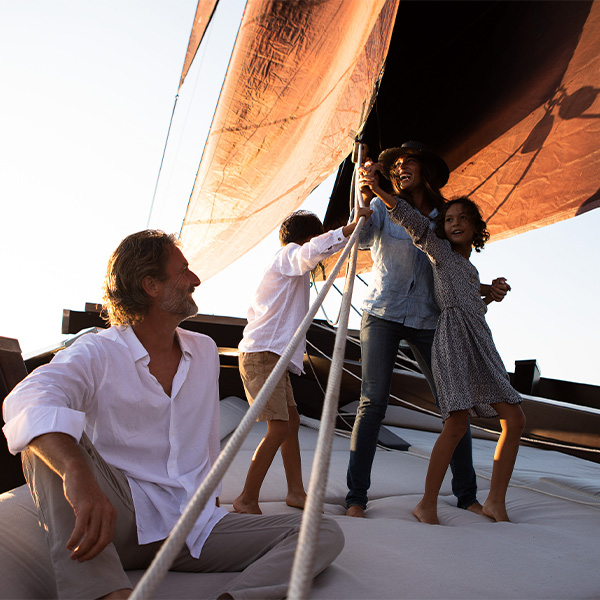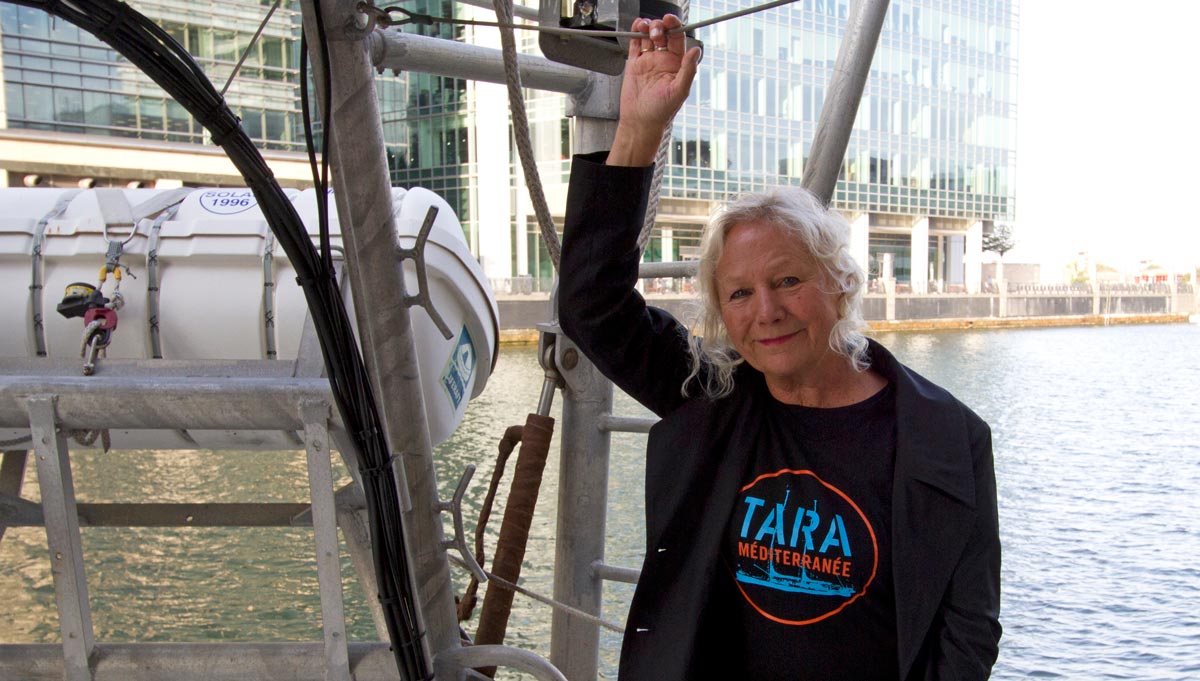
French designer Agnès B. Photo: P. Plante

French designer Agnès B. Photo: P. Plante
Tara Expeditions: On a mission to understand our oceans
Romain Troublé explains how passion is the key driver behind him and Agnès B.’s non‑profit foundation.
French designer Agnès B might be best known for her eponymous fashion brand, which is still going strong four decades in, but she has far more going on besides. As well as heading up all manner of art and film projects, she is also the co-founder of Tara Expeditions, a foundation which organises scientific research voyages on board Tara, a 36 metre sailing yacht. Since launching 15 years ago, her foundation has pulled off 11 successful expeditions across the globe – gathering data everywhere from the Arctic to the Mediterranean.
Today, Agnès, now in her seventies, supports the project from the sidelines, with other backers like the Prince Albert II of Monaco Foundation; funding half of the work that goes on, without spending a lot of time on board. It remains a family affair, though. Along with her son Etienne, her partner in the foundation, there is also Romain Troublé, her nephew who, rather helpfully, is a molecular biologist. “My aunt grew up with a father who was really passionate about the ocean,” he explains. “He communicated this to the whole family – that’s why I’m also passionate today.”
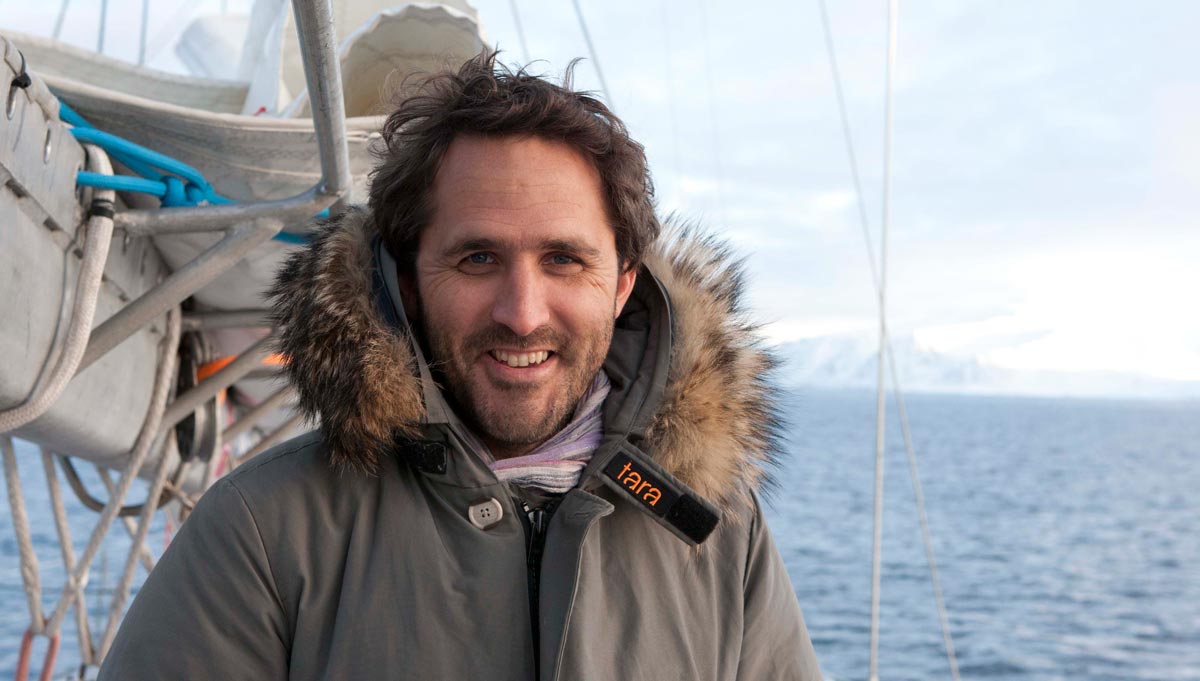
Romain Troublé. Photo: V. Hilaire

Romain Troublé. Photo: V. Hilaire
The boat is currently sailing around the Pacific as part of a two-year expedition to study coral reefs. Alongside its scientific purpose, there is also a real drive to educate en route. “Everywhere that we stop, we get kids on board,” says Troublé. “We were in Hong Kong last week and next we’ll be stopping in Shanghai.” Once the kids are engaged with the boat and its projects, the team tries to teach them that there are things they can do to help. “What do we do, and what can you do? That is really our message,” says Troublé.
The fact that the ocean plastic problem is now hitting the headlines on a regular basis must help to spread that message? “The plastic problem is the biggest driver for change. It’s very powerful, that’s why all the press are catching on,” agrees Troublé. “But it’s very easy to make a splash about the problem – what we need to do is talk about the solutions and explain to people that it is reversible.”
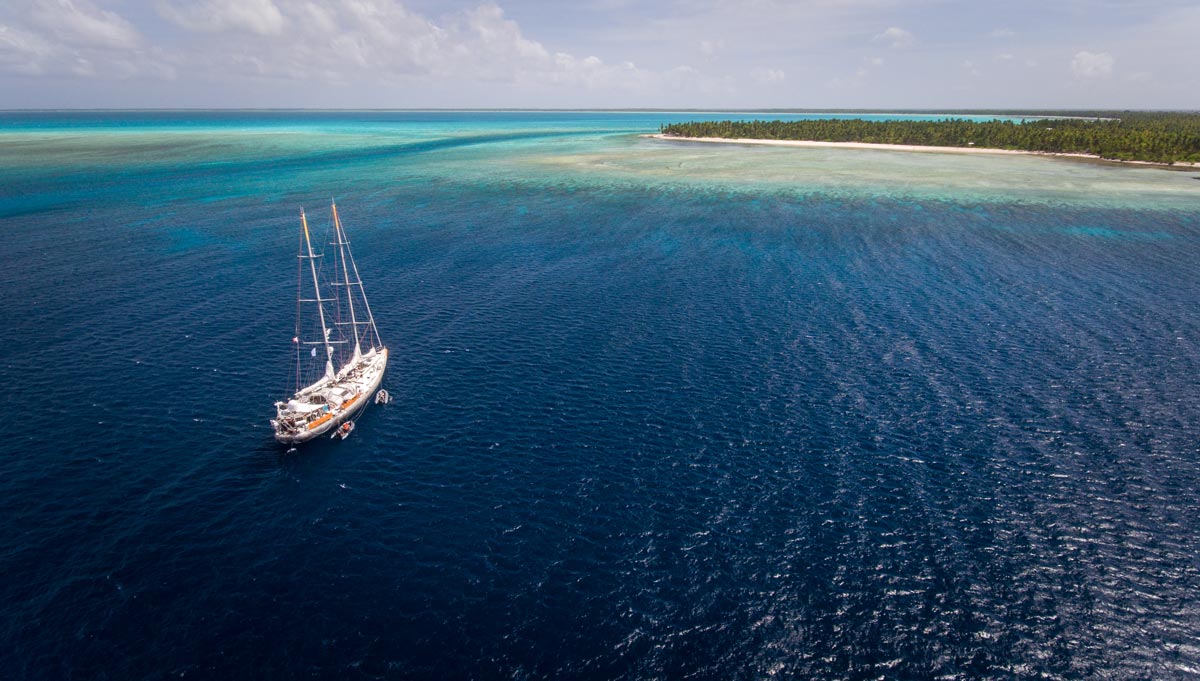
Tara near Abaigan Island, Kiribati. Photo: Nicolas De La Brosse

Tara near Abaigan Island, Kiribati. Photo: Nicolas De La Brosse
Troublé likens the plastic problem to the hole in the ozone layer, discovered back in the 80s. After phasing out the chemicals that were causing the problem, there were gradual improvements. “The plastic issue is one of the very few problems on the planet that could be reversible in a generation or two, as long as we identify the right way forward.” Identifying that roadmap by better understanding ocean health today is a major part of Tara’s work.
One of Troublé’s most memorable expeditions was to study the ecosystem of plankton to determine how marine life was responding to climate change. Nearly 1000 days were spent at sea, sailing across the Arctic, the Pacific, the Indian Ocean and beyond. “The idea of studying plankton might sound boring, but I can tell you that over the four years of sailing, the energy and excitement of the scientists was steady throughout. They knew they were going to discover millions of new things.”
The scientists are likely not the only people enjoying an adrenalin rush on each expedition. For every trip, the team invites a journalist and an artist to come along for the ride. “A jury chooses between hundreds of artists for every trip,” explains Troublé. “There is no agenda, they come on board and they do whatever they are inspired to do.” With them, the scientists and the sailors, a tight knit group of 16 makes up every expedition team, along with visiting scientists from each destination.
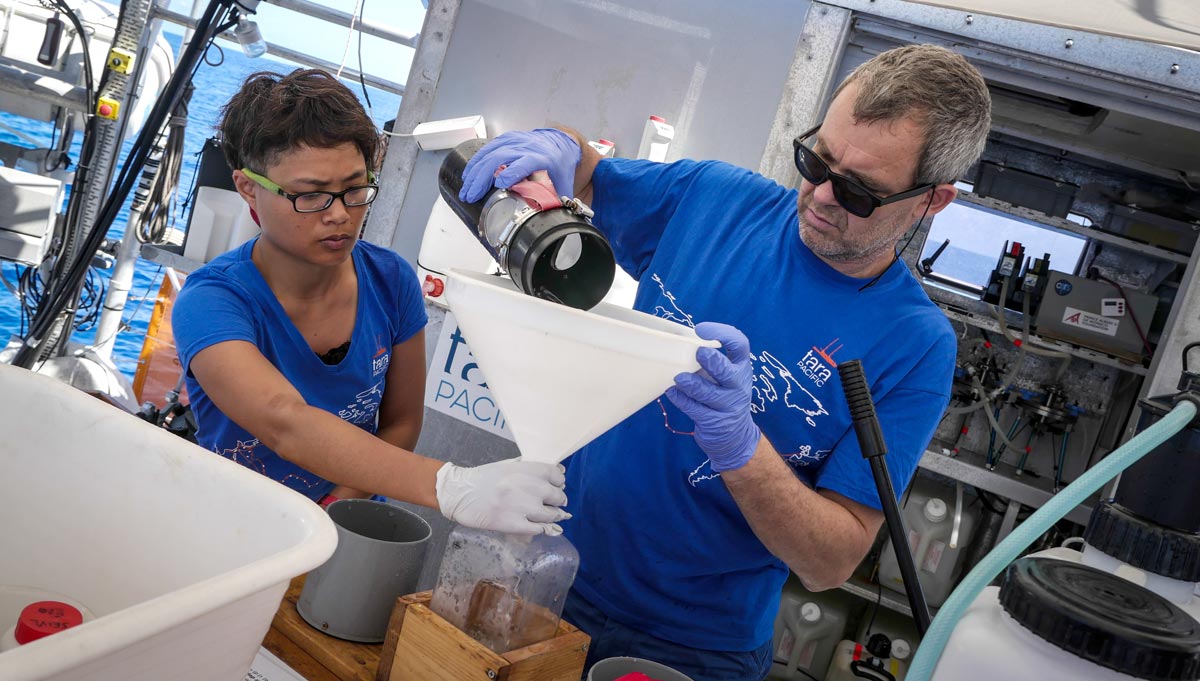
Scientists on board Tara process water samples to collect plankton. Photo: Noëlie Pansiot

Scientists on board Tara process water samples to collect plankton. Photo: Noëlie Pansiot
Troublé himself tends to spend up to two months a year on board – and no doubt both crew and scientists find it helpful when he does. Aside from his biology credentials, he is also a prolific sailor, who has competed in the America’s Cup on a number of occasions. “I spent my life on the ocean for five or six years,” he says, “but you live many lives.” Today, his life is centered the development of the Foundation and his family. Both his son Nemo (named in homage to the Jules Verne story) and daughter Fleur join the expedition at times, and with his father Bruno, the family have another sailing yacht, which they use for holidays together, often heading out to the Greek islands.
Troublé is hopeful that more and more superyacht owners will get behind charitable or scientific causes, either using their boats for research, or simply by putting pressure on the right people. “This ocean playground gives owners a lot of pleasure and quiet time,” he explains, “and they can all do something to help it.” He points to the growing trend for expedition travel as a positive force for change. “People are bored of sailing between Porto Cervo and Monaco – they want to reach more remote places – that goes hand in hand with learning about science and having an awareness of the environment. This is luxury today.”
Find out more at oceans.taraexpeditions.org

